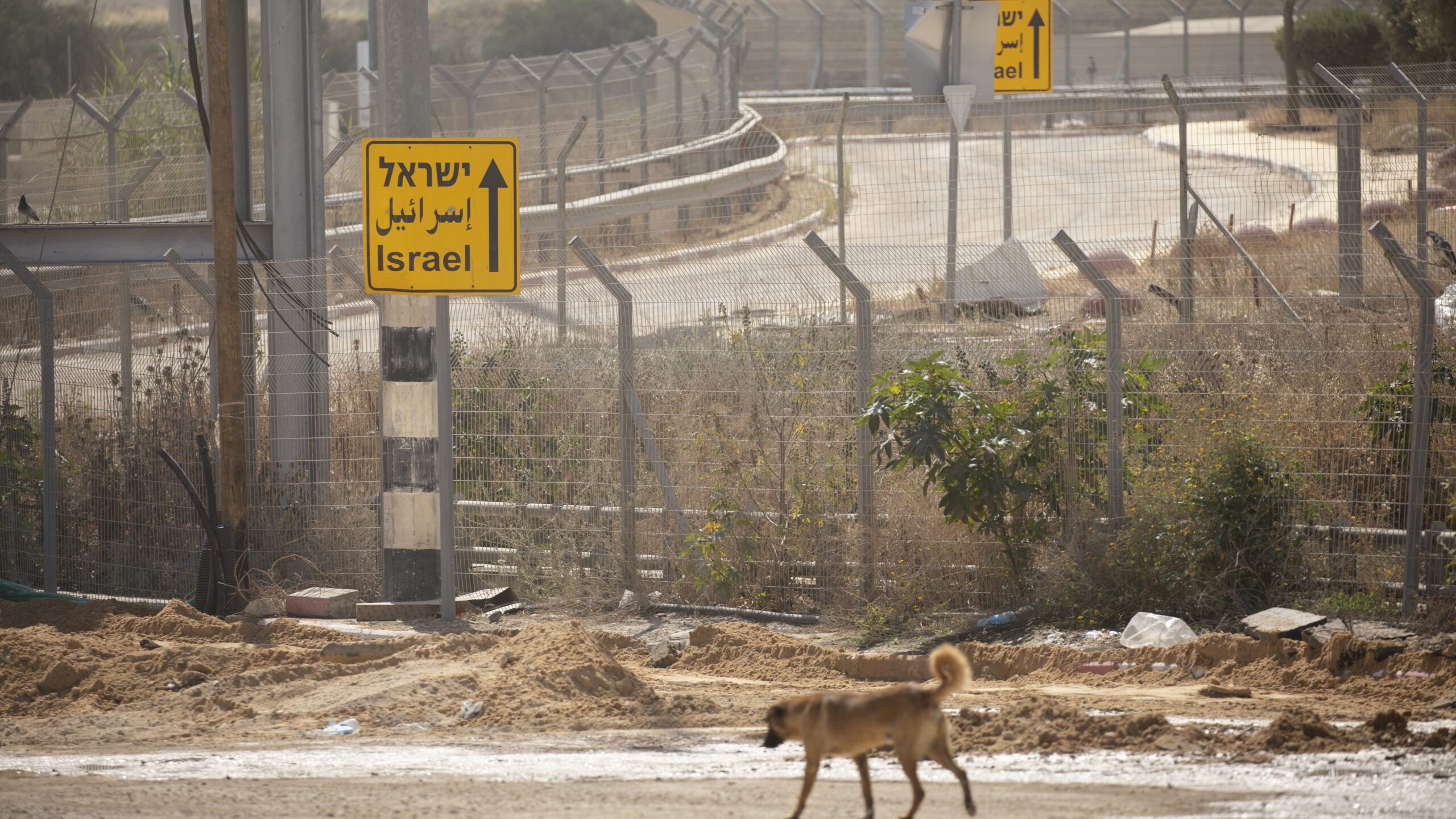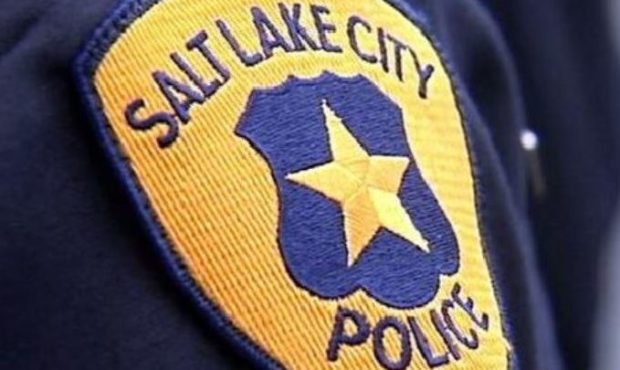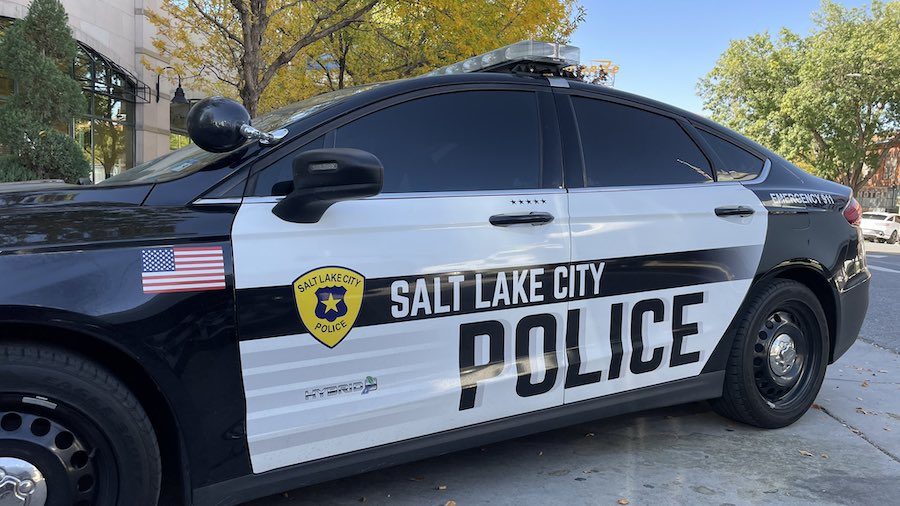Hamas accepts cease-fire proposal for Gaza after Israel orders Rafah evacuation ahead of attack
May 6, 2024, 11:27 AM | Updated: 7:07 pm

A dog walks near the border with the Gaza Strip during a press tour of the Erez Crossing organized by the Israel Defense Forces on May 5, 2024 in Erez Crossing Point, Israel. Earlier this week, Israel reopened the Erez Crossing to allow more aid shipments to reach Gaza, whose population is experiencing widespread hunger after nearly seven months of war. Hamas announced Monday it has accepted an Egyptian-Qatari proposal for a cease-fire to halt the seven-month-long war with Israel in Gaza, hours after Israel ordered about 100,000 Palestinians to begin evacuating from the southern city of Rafah, (Amir Levy/Getty Images)
(Amir Levy/Getty Images)
JERUSALEM (AP) — Hamas announced Monday it has accepted an Egyptian-Qatari proposal for a cease-fire to halt the seven-month-long war with Israel in Gaza, hours after Israel ordered about 100,000 Palestinians to begin evacuating from the southern city of Rafah, signaling that a long-promised ground invasion there could be imminent.
There was no immediate comment from Israel on the deal, and details of the proposal have not yet been released. In recent days, Egyptian and Hamas officials have said the cease-fire would take place in a series of stages during which Hamas would release hostages it is holding in exchange for Israeli troop pullbacks from Gaza.
It is not clear whether the deal will meet Hamas’ key demand of bringing about an end to the war and complete Israeli withdrawal.
Hamas said in a statement its top leader, Ismail Haniyeh, had delivered the news in a phone call with Qatar’s prime minister and Egypt’s intelligence minister. After the release of the statement, Palestinians erupted in cheers in the sprawling tent camps around Rafah, hoping the deal meant an Israeli attack had been averted.
Israel’s closest allies, including the United States, have repeatedly said that Israel shouldn’t attack Rafah. The looming operation has raised global alarm over the fate of around 1.4 million Palestinians sheltering there.
Aid agencies have warned that an offensive will worsen Gaza’s humanitarian catastrophe and bring a surge of more civilian deaths in an Israeli campaign that in nearly seven months has killed 34,000 people and devastated the territory.
U.S. President Joe Biden spoke Monday with Israeli Prime Minister Benjamin Netanyahu and reiterated U.S. concerns about an invasion of Rafah. Biden said that a cease-fire with Hamas is the best way to protect the lives of Israeli hostages held in Gaza, a National Security Council spokesperson said on condition of anonymity to discuss the call before an official White House statement was released.
Hamas and key mediator Qatar said that invading Rafah will derail efforts by international mediators to broker a cease-fire. Days earlier, Hamas had been discussing a U.S.-backed proposal that reportedly raised the possibility of an end to the war and a pullout of Israeli troops in return for the release of all hostages held by the group. Israeli officials have rejected that trade-off, vowing to continue their campaign until Hamas is destroyed.
Netanyahu said Monday that seizing Rafah, which Israel says is the last significant Hamas stronghold in Gaza, was vital to ensuring the militants can’t rebuild their military capabilities and repeat the Oct. 7 attack on Israel that triggered the war.
Lt. Col. Nadav Shoshani, an army spokesman, said about 100,000 people were being ordered to move from parts of Rafah to a nearby Israel-declared humanitarian zone called Muwasi, a makeshift camp on the coast. He said that Israel has expanded the size of the zone and that it included tents, food, water and field hospitals.
It wasn’t immediately clear, however, if that material was already in place to accommodate the new arrivals.
Around 450,000 displaced Palestinians already are sheltering in Muwasi. The U.N. agency for Palestinian refugees, known as UNRWA, said it has been providing them with aid. But conditions are squalid, with few bathrooms or sanitation facilities in the largely rural area, forcing families to dig private latrines.
After the evacuation order announcement Monday, Palestinians in Rafah wrestled with having to uproot their extended families once again for an unknown fate, exhausted after months living in sprawling tent camps or crammed into schools or other shelters in and around the city. Few who spoke to The Associated Press wanted to risk staying.
Mohammed Jindiyah said that at the beginning of the war, he had tried to hold out in his home in northern Gaza after Israel ordered an evacuation there in October. He ended up suffering through heavy bombardment before fleeing to Rafah.
He’s complying with the order this time, but was unsure now whether to move to Muwasi or another town in central Gaza.
“We are 12 families, and we don’t know where to go. There is no safe area in Gaza,” he said.
Sahar Abu Nahel, who fled to Rafah with 20 family members including her children and grandchildren, wiped tears from her cheeks, despairing at a new move.
“I have no money or anything. I am seriously tired, as are the children,” she said. “Maybe it’s more honorable for us to die. We are being humiliated.”
Israeli military leaflets were dropped with maps detailing a number of eastern neighborhoods of Rafah to evacuate, warning that an attack was imminent and anyone who stays “puts themselves and their family members in danger.” Text messages and radio broadcasts repeated the message.
UNRWA won’t evacuate from Rafah so it can continue to provide aid to those who stay behind, said Scott Anderson, the agency’s director in Gaza.
“We will provide aid to people wherever they choose to be,” he told the AP.
The U.N. says an attack on Rafah could disrupt the distribution of aid keeping Palestinians alive across Gaza. The Rafah crossing into Egypt, a main entry point for aid to Gaza, lies in the evacuation zone. The crossing remained open Monday after the Israeli order.
Jan Egeland, secretary-general of the Norwegian Refugee Council, condemned the “forced, unlawful” evacuation order and the idea that people should go to Muwasi.
“The area is already overstretched and devoid of vital services,” Egeland said. He said that an Israeli assault could lead to “the deadliest phase of this war.”
Israel’s bombardment and ground offensives in Gaza have killed more than 34,700 Palestinians, around two-thirds of them children and women, according to Gaza health officials. The tally doesn’t distinguish between civilians and combatants. More than 80% of the population of 2.3 million have been driven from their homes, and hundreds of thousands in the north are on the brink of famine, according to the U.N.
Tensions escalated Sunday when Hamas fired rockets at Israeli troops positioned on the border with Gaza near Israel’s main crossing for delivering humanitarian aid, killing four soldiers. Israel shuttered the crossing — but Shoshani said it wouldn’t affect how much aid enters Gaza as others are working.
Meanwhile, Israeli airstrikes on Rafah killed 22 people, including children and two infants, according to a hospital.
The war was sparked by the unprecedented Oct. 7 raid into southern Israel in which Hamas and other militants killed around 1,200 people, mostly civilians, and abducted around 250 hostages. After exchanges during a November cease-fire, Hamas is believed to still hold about 100 Israelis captive as well the bodies of around 30 others.
The mediators over the cease-fire — the United States, Egypt and Qatar — had appeared to scramble to salvage a cease-fire deal they had been trying to push through the past week. Egypt said it was in touch with all sides Monday to “prevent the situation from … getting out of control.”
CIA Director William Burns, who had been in Cairo for talks on the deal, headed to meet the prime minister of Qatar, an official familiar with the matter said. It wasn’t clear whether a subsequent trip to Israel that had been planned would happen. The official spoke on condition of anonymity to discuss the closed-door negotiations.
In a fiery speech Sunday evening marking Israel’s Holocaust memorial day, Netanyahu rejected international pressure to halt the war, saying that “if Israel is forced to stand alone, Israel will stand alone.”
On Monday, Netanyahu accused Hamas of “torpedoing” a deal by not budging from its demand for an end to the war and a complete Israeli troop withdrawal in return for the hostages’ release, which he called “extreme.”
___
Bassem Mroue reported from Beirut. Zeke Miller contributed to this report from Washington.













